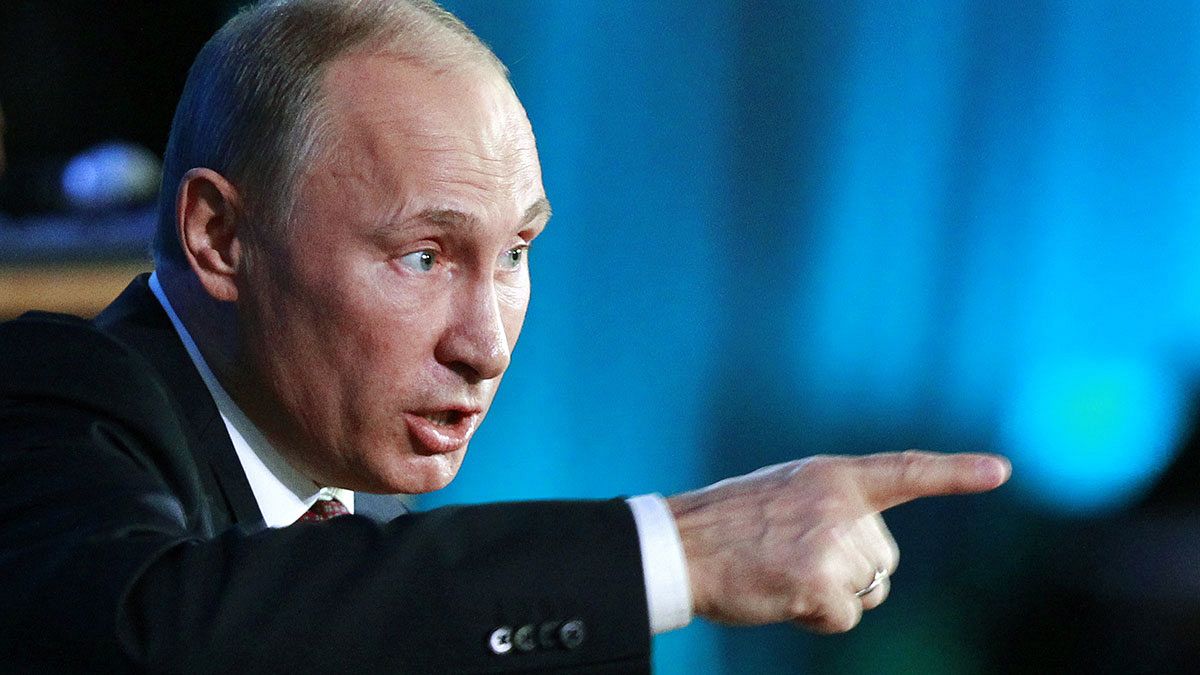President Vladimir Putin tightened his control over Russia’s media on Monday by dissolving the main state news agency and replacing it with an organisation that is to promote Moscow’s image abroad.
The move to abolish RIA Novosti and create a news agency to be known as Rossiya Segodnya is the second in two weeks strengthening Putin’s hold on the media as he tries to reassert his authority after protests against his rule.
Most Russian media outlets are already loyal to Putin, and opponents get little air time, but the shake-up underlined their importance to Putin keeping power and the Kremlin’s concern about the president’s ratings and image.
Independent political analyst Pavel Salin said the move was likely a result of a turf wars at the Kremlin and a victory for the hawks as it also sidelines the current RIA Novosti head, Svetlana Mironyuk, who is seen as more liberally-minded. “I expect a sharp ideological turn now towards much more hawkish reporting under the even closer eye of the Kremlin and directed at the West,” Salin said.
The head of the new agency, to be built from the ashes of RIA Novosti, is a conservative news anchor, Dmitry Kiselyov, who once caused outrage by saying the organs of homosexuals should not be used in transplants.
“The main focus of … Rossiya Segodnya (Russia Today) is to highlight abroad the state policy and public life of the Russian Federation,” said a decree signed by Putin.
Sergei Ivanov, the head of the presidential administration, told reporters that the changes were intended to save money and improve the state media. But the new organisation has strong similarities to APN, a Soviet-era news agency whose role included writing articles about “the social-economic and cultural life of the Soviet people and items reflecting Soviet society’s point of view on important internal and international events”.
RIA said in an English-language article about Putin’s step: “The move is the latest in a series of shifts in Russia’s news landscape which appear to point towards a tightening of state control in the already heavily regulated media sector.”
Rossiya Segodnya’s focus on building up Russia abroad could solidify Putin’s grip on information by further limiting sources of news for Russians whose TV screens are dominated by state-controlled channels. Putin’s decree appeared to have little effect on the two other major Russian news agencies, state-run Itar-Tass and private Interfax, but it could benefit both by making RIA’s replacement less of a competitor domestically.
Itar-Tass is the successor of the Soviet official Tass agency, while Interfax has more leeway as a private agency but is restricted by the Kremlin’s dominance.
Controversial new boss
A prominent member of parliament, Alexei Mitrofanov, described Kiselyov as a “powerful propagandist” but said this was a good thing and that he was suitable for the job.
In his third term, after weathering protests led by urban liberals, the 61-year-old Putin has often appealed to conservatives and championed the Russian Orthodox Church as a moral guide for society.
Kiselyov has proved a loyal Putin supporter as a television presenter, at times making provocative remarks. In 2010 he said homosexuals should be banned from donating blood or sperm and last year said they should also be banned from donating organs.
The Kremlin extended its grip over radio and television broadcasting on Nov. 26 when the media arm of state-controlled Gazprom bought mining tycoon Vladimir Potanin’s Profmedia.
Through the deal, the ex-Soviet gas ministry – now Russia’s largest firm by revenue – will add TV and radio stations, cinemas and film production and distribution assets to a sprawling portfolio built up around commercial channel NTV.
The Kremlin already funds an English-language TV channel called RT which was initially known as Russia Today. It is not clear whether the two will operate separately and RT’s head, Margarita Simonyan, said she had been unaware of the move.
The new organisation will be created in RIA Novosti’s headquarters in central Moscow. The fate of its journalists and other employees was not immediately clear.
RIA Novosti was created as the Soviet Information Bureau in 1941, after Nazi Germany invaded the Soviet Union, and issues reports in Russian and foreign languages.
(With Reuters)
